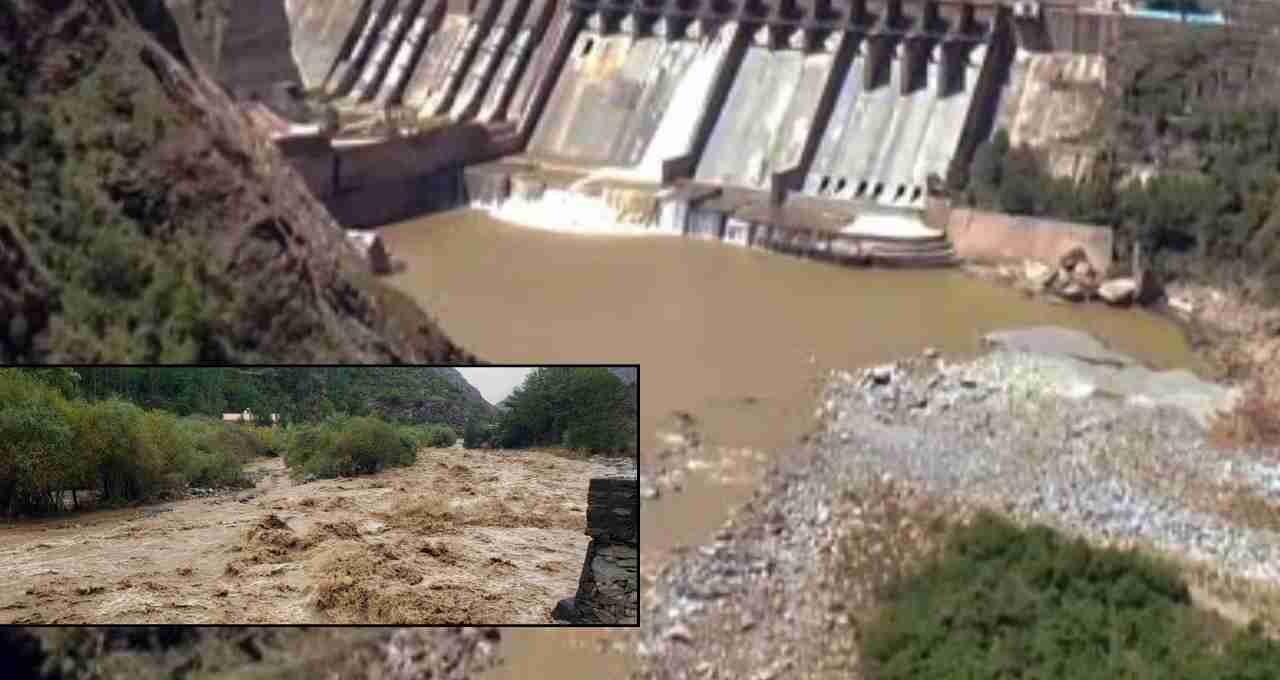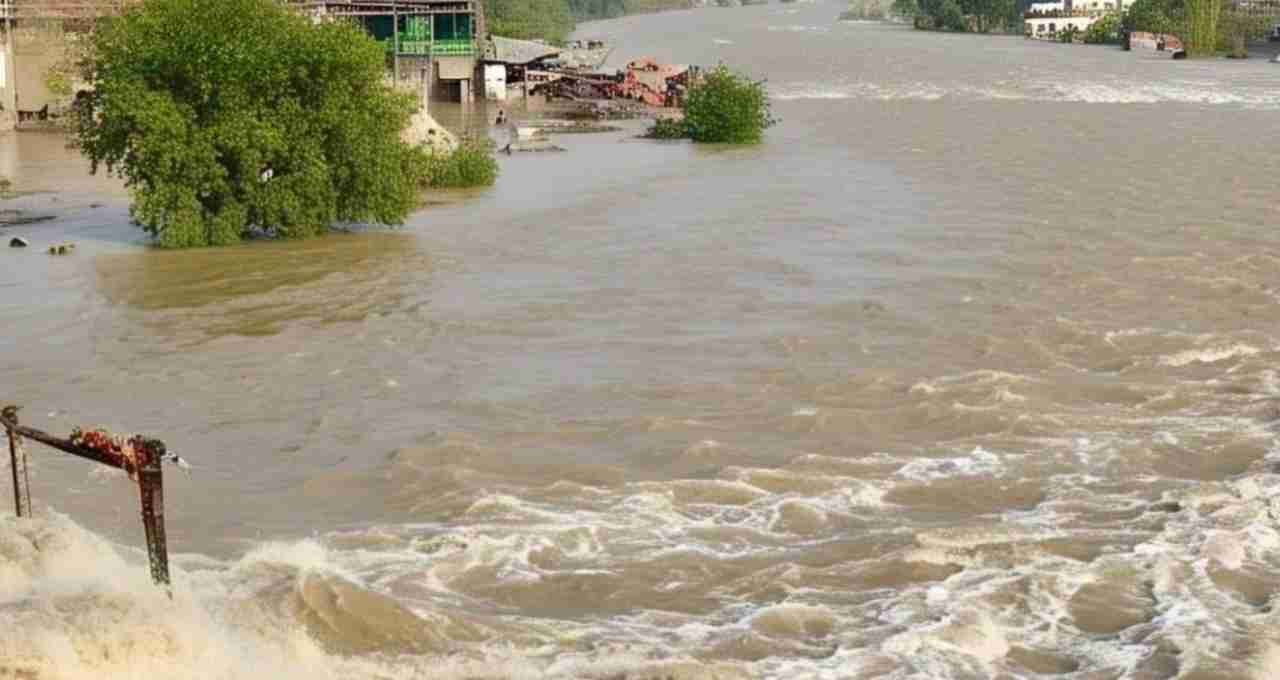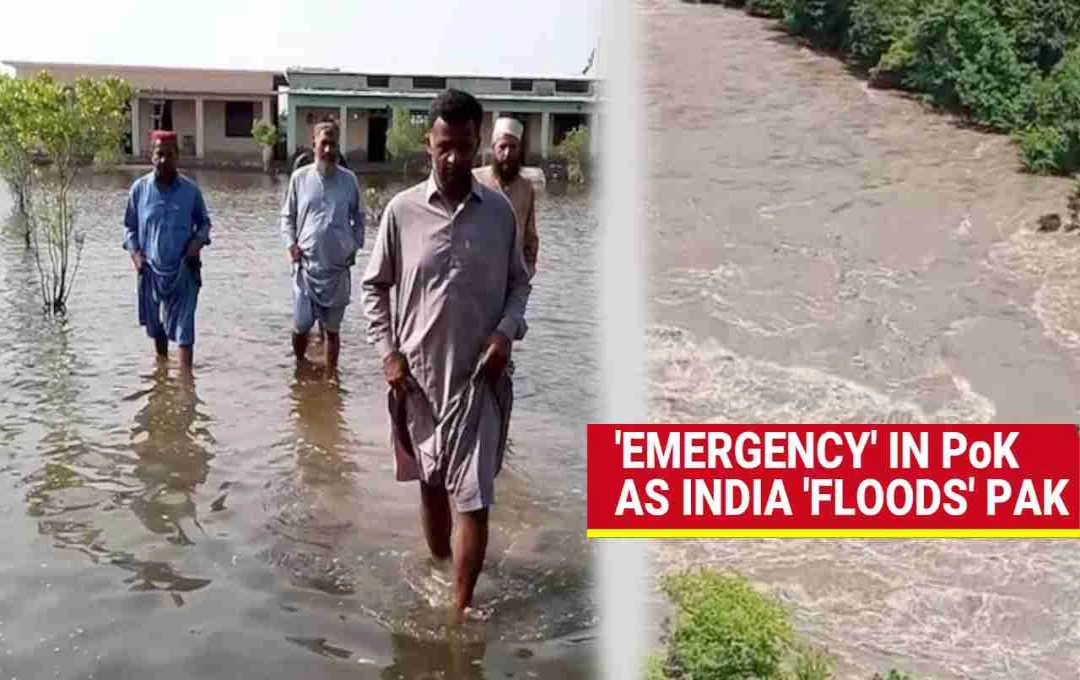Following India's Suspension of the Indus Waters Treaty, Water Released into Jhelum River; Muzaffarabad Flooded, Emergency Declared. Pakistan Accuses India of Unilateral Water Release.
Pak Emergency: Severe and sudden flooding in Muzaffarabad, Pakistan-administered Kashmir (PoK), has caused widespread devastation. The situation deteriorated so rapidly that the local administration declared a state of emergency. Pakistani media has directly blamed India, leveling serious accusations for this crisis.
Let's understand the full situation, how the suspension of the Indus Waters Treaty contributed to this crisis, and its impact on Pakistan.
Sudden Rise in Jhelum River Water Levels Causes Panic
- Reports indicate that India released water into the Jhelum River without prior notice, causing a rapid increase in water levels. The water flowed from Baramulla district in northern Kashmir into the Chakote area of Pakistan-administered Kashmir. The b current resulted in flood-like conditions in Muzaffarabad and surrounding areas.
- Seeing the worsening situation, the local administration has declared a water emergency in Hattian Bala. Announcements were made in mosques warning people to move to safer locations.
Already Strained India-Pakistan Relations Further Deteriorate
It's noteworthy that relations between India and Pakistan worsened after a recent terrorist attack in Pahalgam, Jammu and Kashmir. India, holding Pakistan responsible for supporting terrorism, decided to suspend the Indus Waters Treaty.
Pakistani media now claims that India released water from the Jhelum River without warning after suspending the treaty, leading to the sudden floods.
India Officially Suspends the Treaty
The Indian government issued a formal notification suspending the Indus Waters Treaty on Saturday, which was also handed over to Pakistan on Thursday. According to this notification:

- Meetings between the water commissioners of both countries will no longer take place.
- Data related to river flow and flood warnings will not be shared.
- India will be able to construct projects (such as dams) on rivers without consulting Pakistan.
India's Water Resources Secretary Debashree Mukherjee wrote to Pakistan stating that Pakistan's support for terrorism in Jammu and Kashmir is a violation of the treaty's fundamental principles; therefore, India is no longer bound by the treaty.
Pakistan Warns: 'Act of War'
Pakistan has bly opposed India's move.
Islamabad has stated that any obstruction of the Indus River's water flow by India will be considered a direct act of war.
Pakistan argues that the Indus Waters Treaty was the best symbol of trust between the two countries. Its suspension could further escalate regional tensions.
What is the Indus Waters Treaty?
The Indus Waters Treaty was signed between India and Pakistan in 1960, mediated by the World Bank.
Under the treaty:
- India was granted full control over the Ravi, Beas, and Sutlej rivers.
- Pakistan received the rights to the waters of the Indus, Jhelum, and Chenab rivers.
- The treaty aimed to ensure peaceful management of river waters and prevent war between the two countries.
Impact of India's Suspension on Pakistan
Experts say that India's suspension of the Indus Waters Treaty could severely impact Pakistan:
1. Direct Impact on Agriculture
Approximately 90% of Pakistan's irrigation system depends on the Indus River system. If water flow decreases:
- Crop production will be severely affected.
- Food shortages could worsen.
- Famine and unrest could spread in rural areas.
2. Decline in Power Generation

Several hydroelectric projects operate on the Indus and its tributaries. If water flow decreases:
- Hydropower generation will fall.
- Power shortages and load shedding will increase.
- Pakistan may have to import expensive coal and other energy sources.
3. Water Crisis and Drought
Now India will not provide Pakistan with:
- Flood warnings
- Glacier melt information
- Water flow data
This will significantly increase the likelihood of sudden droughts or floods in Pakistan.
4. Pakistan Will Lose Oversight of Indian Projects
Previously, the Pakistani Indus Water Commissioner could inspect Indian dams and water projects. India has now stopped this process. This means Pakistan will no longer be able to monitor Indian projects.
5. No More Reports from the Permanent Indus Commission
Under the Indus Waters Treaty, the Permanent Indus Commission annually published a report. This will no longer happen, severely impacting Pakistan's agricultural and water management plans.
A Difficult Path Ahead for Pakistan
Pakistan is already grappling with:
- Economic crisis
- Inflation
- Political instability
- Food crisis
Now, a water crisis looms large.
- Provinces like Punjab and Sindh, already facing severe water shortages, will be most affected.













